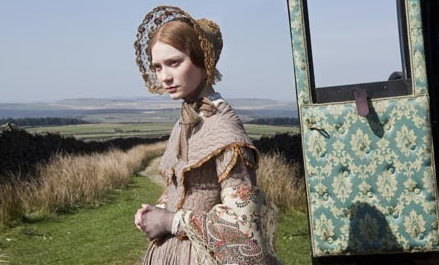Feminism and Independence in Jane Eyre: A Journey of Self-Discovery
The themes of feminism and independence in Charlotte Brontë’s Jane Eyre resonate deeply with contemporary audiences, as they explore the struggles for identity and autonomy in a patriarchal society. This novel not only serves as a timeless narrative about self-empowerment but also offers valuable insights into the challenges women faced in the 19th century, making it essential reading for those interested in gender studies and literary history.
Understanding Feminism in Jane Eyre
At its core, Jane Eyre presents a strong feminist message through the character of Jane herself. From her challenging childhood to her pursuit of love and respect, Jane embodies the struggle for agency and equality. Brontë highlights the restrictive societal norms of her time, particularly regarding women’s roles in marriage and work. Jane’s defiance against these conventions, particularly in her relationship with Mr. Rochester, emphasizes the importance of self-respect and personal freedom. Her refusal to compromise her values for love ultimately underscores a crucial feminist principle: that a woman’s identity should not be defined by her relationships with men.
The Quest for Independence
Jane’s journey is one of liberation and self-actualization. Throughout the novel, she faces numerous obstacles, from her oppressive upbringing with the Reeds to the constraints of Thornfield Hall. Each encounter serves as a catalyst for her growth and independence. For instance, when she learns that Rochester intends to marry her despite his existing marriage, Jane’s decision to leave him represents a powerful assertion of her autonomy. Brontë emphasizes that true independence is not merely physical freedom but also the ability to make choices that align with one’s values and aspirations. By prioritizing her self-worth over societal acceptance, Jane becomes a symbol of resilience and independence.
The Role of Gender and Society
Jane Eyre also critiques the societal norms that dictate women’s roles, shedding light on the limited options available to them. Brontë underscores the economic dependency many women faced, illustrating how societal expectations stifled their ambitions. Through characters like Bertha Mason, who is marginalized and ultimately imprisoned, Brontë explores the dire consequences of a woman’s loss of agency. These portrayals serve as a reminder of the intense societal pressures that women confronted and the dire need for a more equitable world. By highlighting these issues, Brontë invites readers to reflect on the ongoing struggles for gender equality and the importance of advocating for women’s rights.
In closing, Jane Eyre is not only a compelling novel but also a profound commentary on feminism and independence. Jane’s journey empowers readers to reflect on their own identities and the societal structures that shape them. Engaging with this classic work reveals valuable lessons about self-assertion, which remain relevant today. Whether you’re a seasoned reader or new to Brontë’s work, consider exploring the intricate themes of feminism and independence in Jane Eyre. The insights gained from this rich narrative are sure to inspire ongoing discussions about gender and personal freedom.
